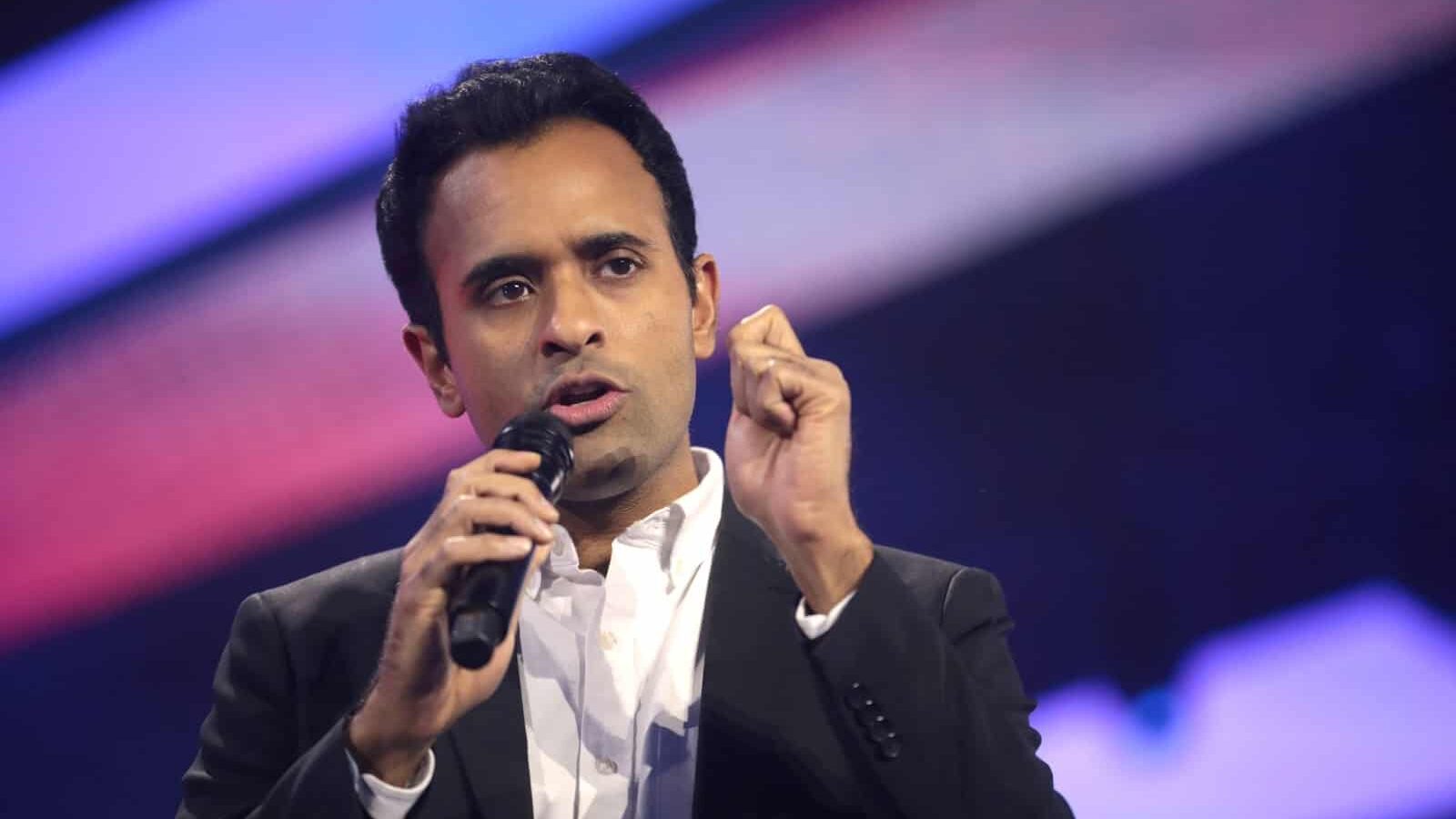Ironically, the youngest candidate in the 2024 presidential field is planning a proposal in which the voting age would rise to 25. Ramaswamy, 37, told POLITICO that he will call for increasing the voting age to 25, “unless a citizen 18 or older is enrolled in the military, works as a first-responder or passes the same civics test given to immigrants seeking American citizenship.” This would require a constitutional amendment. American citizens must have “some civic experience” before actually voting, Ramaswamy said. Ramaswamy has also said that most of his staffers aren’t keen on the idea, even convincing him to hold off with a public proposal. Nonetheless, the president-hopeful is adamant about doing it, even as he focuses on engaging more youths in his campaign. “My response to that is, the objective is not to stop people from voting,” he said. “It’s to value voting itself, and everybody’s equal and on the same foot at the age of 25 and onward.”
Vivek Ramaswamy wants to raise the voting age. Even his staff doesn’t like the idea.
By Natalie Allison; May 10, 2023
Vivek Ramaswamy, the youngest candidate in the Republican presidential field, is preparing to announce a new policy proposal: Raising the voting age.
He says even his staff doesn’t like the idea.
Ramaswamy, the millennial 37-year-old biotech entrepreneur who made a mark in the primary when he polled on par with former Vice President Mike Pence in a CBS survey last week, told POLITICO that in Iowa this week, he’ll call for increasing the automatic voting age to 25, unless a citizen 18 or older is enrolled in the military, works as a first-responder or passes the same civics test given to immigrants seeking American citizenship. Such a change could only be implemented by passing a constitutional amendment.
“There needs to be some civic experience you need to have gone through in order to actually vote,” Ramaswamy said. “That experience could be living seven years as an adult and voting at age 25. That experience could be direct service to the country or some first responder service,” or, he added, passing a civics test.
The founding fathers didn’t get it “quite right” when they tied the right to vote to land ownership, Ramaswamy said. Similarly, it was wrong to have denied a vote to women and African Americans, he said.
But there’s something to the notion that “you value a country more — you value anything more, including a country — that you don’t just simply inherit, but that you have a stake in building and creating in some way,” he said.
The proposal has almost no chance of enactment. And politically, it is perilous. In separate conversations with POLITICO, staff expressed discomfort with the proposal. He has no polling on how such a proposal might land with voters.
And while Ramaswamy has privately discussed the idea with his team since he announced his presidential bid in February, he had been convinced to hold off, his aides believing the idea would not be received well.
“Most of the team has not been for this,” a campaign adviser who was granted anonymity to discuss internal conversations said.
But after floating at a few recent campaign stops, particularly colleges, the idea of requiring service or civic knowledge for young adults to vote — a version of which Ramaswamy had explored in his two books — he got his best crowd response to date on Sunday, at an event largely attended by Asian Americans in Novi, Mich. Members of the audience, which included a number of immigrants, came up to Ramaswamy afterward to praise the suggestion, which appeared to “seal the deal” for Ramaswamy, according to the campaign adviser.
In an interview, Ramaswamy acknowledged that there had been “vehement objections” from his team. But, he added, “we’re doing it.”
The proposal, if taken seriously, is likely to draw swift criticism from voting rights advocates and Democrats. In the unlikely scenario such a measure was approved — either by Congress or a constitutional convention petitioned by state legislatures — it would disproportionately affect Democrats’ electoral prospects, since Generation Z voters decidedly skew left. Exit polls this fall showed 63 percent of 18 to 24-year-olds voting Democratic.
It would also hearken back to eras of literary poll tests administered in some jurisdictions to prevent certain Black and poor Americans from casting votes. Ramaswamy dismissed the idea that his proposal would discriminate against a certain group of citizens.
“My response to that is, the objective is not to stop people from voting,” he said. “It’s to value voting itself and everybody’s equal and on the same foot at the age of 25 and onward.”
The national voting age was lowered from 21 to 18 with the passage of the 26th Amendment in 1971. After Republicans’ less than stellar performance in last year’s midterm elections, a handful of conservative commentators called for raising the voting age, though the idea failed to gain significant traction.
Despite suggesting they should have to work harder to vote, Ramaswamy has focused on youth engagement. His Thursday night rally scheduled with Iowa Gov. Kim Reynolds in Urbandale is being billed by the Dallas County Republican Party as a “youth rally” in a county where the median age is 35. Earlier in the day, Ramaswamy, a nationally ranked junior tennis player, is scheduled to hit balls with tennis players from Drake University and local high school students. He has made stops at several other colleges on the campaign trail.
His wife, Apoorva, a medical doctor who teaches at Ohio State University, came to the United States from India as a child but took and passed the citizenship exam as a college student.
